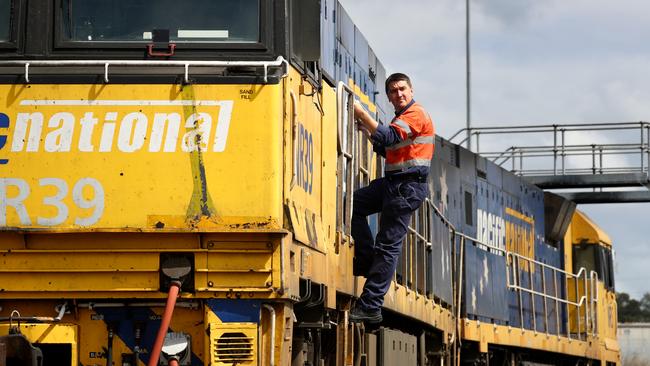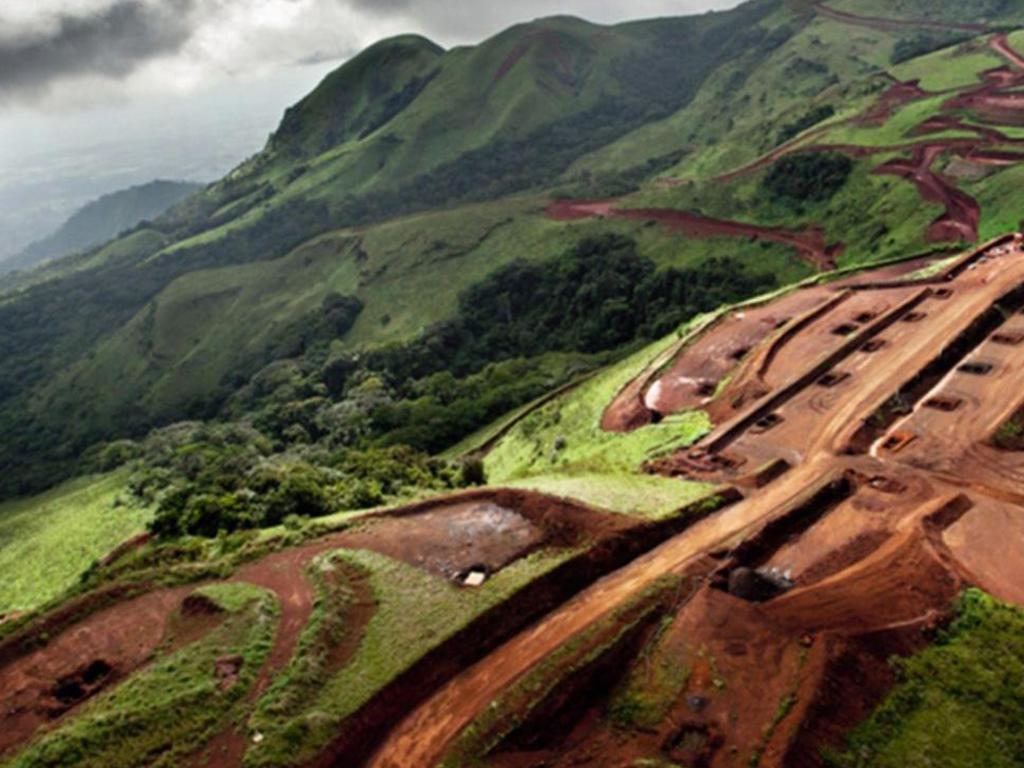
The pride of Australian rail – the standard gauge link between the east coast and Perth – is rapidly losing freight market share to foreign-manned container ships returning from dropping cargo in Brisbane Sydney and Melbourne. With token operating costs, they can substantially undercut rail.
But the foreign shipping damage across the Nullarbor still has a long way to go before it reaches the Melbourne and Sydney rail link disaster, where only token tonnages of freight are now carried.
On the Melbourne-Sydney route it is road, rather than sea, that has replaced rail. It is uneconomic to run the line on passengers alone so, given our debt plague, in due course it will need to be shut down. The link to Brisbane for freight is being kept alive in the hope that there will be a modern train link direct from Brisbane to Melbourne. It’s more than half built but the last leg is being held up by a powerful farm and political lobby. Unless the problems can be overcome the billions so far spent will be wasted and road will dominate the journey for decades to come. Accordingly the current Sydney-Brisbane rail link will go the same way as Melbourne-Sydney.
In the 10 years to 2016 freight carried by rail rose by 50 per cent and the Commonwealth was forecasting a 26 per cent rise in the decade to 2026. Instead it has crashed.
The great Australian dream that, leaving aside fast rail, we would be able to revitalise the traditional railways to lessen the strain on our roads and cut emissions has been torpedoed.
The WA tragedy is almost unbelievable and longer term will impact the non-mining growth rate of the WA community.
In former decades, goods going from the east coast to WA represented more than twice the volume of goods making the return journey. As a result the prices charged for WA goods going east was much less than that levied on goods going west. That fostered a series of WA industries that took advantage of the low freight rates.
But now shipping (with some road transport) has reduced the rail share of non-refrigerated goods travelling to Perth from close to 90 per cent to around 57 per cent. The shipping lines do not carry Perth freight east so Perth-East coast volumes of non-refrigerated goods will soon become the biggest cargo.
As the great Nullarbor rail line becomes more and more dependent on WA goods travelling east, those goods will have to pay the same cost as goods coming west and this will put many WA operations out of business, further destroying the economics of the rail line.
Three players
In 2016 there were three companies carrying freight on the route – Pacific National which bought the old government owned railway network; SCT which is owned by the Smith family (Geoff Smith is CEO) and Queensland Rail which changed its name to Aurizon.
Queensland Rail closed its operation after heavy losses. That gave the Pacific National and SCT breathing space but the cost differential continues to boost the use of foreign-crewed shipping. And in the post COVID-19 era the tighter conditions on the east coast are likely to dramatically increase the use of foreign-crewed chips.
The Commonwealth, which owns the rail line from the east coast to Kalgoorlie, is like a giant shopping mall and annually increases its charges despite the carnage.
And the line from Kalgoorlie to Perth is owned by private equity, which paid top dollar because it was allowed to charge freight rates substantially above those charged by the federal government. Who cares if their actions help destroy the Nullarbor rail economics?
Track charges represent about 30 per cent of the costs of the journey. The carnage on the Nullarbor rail is cleverly obscured by the official statistics’ which include local Perth traffic.
What will probably save the Nullarbor line from going the same way as Melbourne-Sydney is the refrigerated cargo which the ships can’t take.
In addition, the shipping journey takes much longer, but depressed suppliers on the east coast are looking to use the container vessels as warehouses. And if port inefficiencies were overcome the shipping time would be slashed.
In due course, as the Nullarbor line loses further traffic, there will be considerable labour shedding. Eventually Pacific National and SCT will have to ask the ACCC to be able work together.
Shippers would argue that being able to transport containers by sea to WA makes Australia a more attractive place to service with goods. Given we have decimated our manufacturing, the east coast needs regular shipping. But paradoxically, when COVID-19 hit in the ships suddenly stopped coming to Australia. That meant there was very little capacity to take goods from the east coast to WA and they had to return to train.
The COVID-19 outbreak in April May came at a time that is normally slack so Pacific National and SCT had spare capacity and could carry the extra load. Next time may be different.
Road efficiency
On the east coast, to their great credit, road transport operators have become more and more efficient, with larger trucks and a reduction in the fuel they use. In due course, hybrid vehicles will cut fuel use further. Rail can’t compete on the Sydney-Melbourne run, but a direct Melbourne Brisbane track would allow larger trains and some freight could go to Sydney via Parkes.
But as we have seen both on the Nullarbor and on the east coast rail transport is a very low political priority. After ignoring the freight slump when passenger traffic, Melbourne to Adelaide, was about to cease the politicians reacted but, without freight, passenger rail on conventional tracks can’t survive.







Step by step death warrants are being signed for our great national railway network. Unless the community wakes up little will remain by the end of the decade.